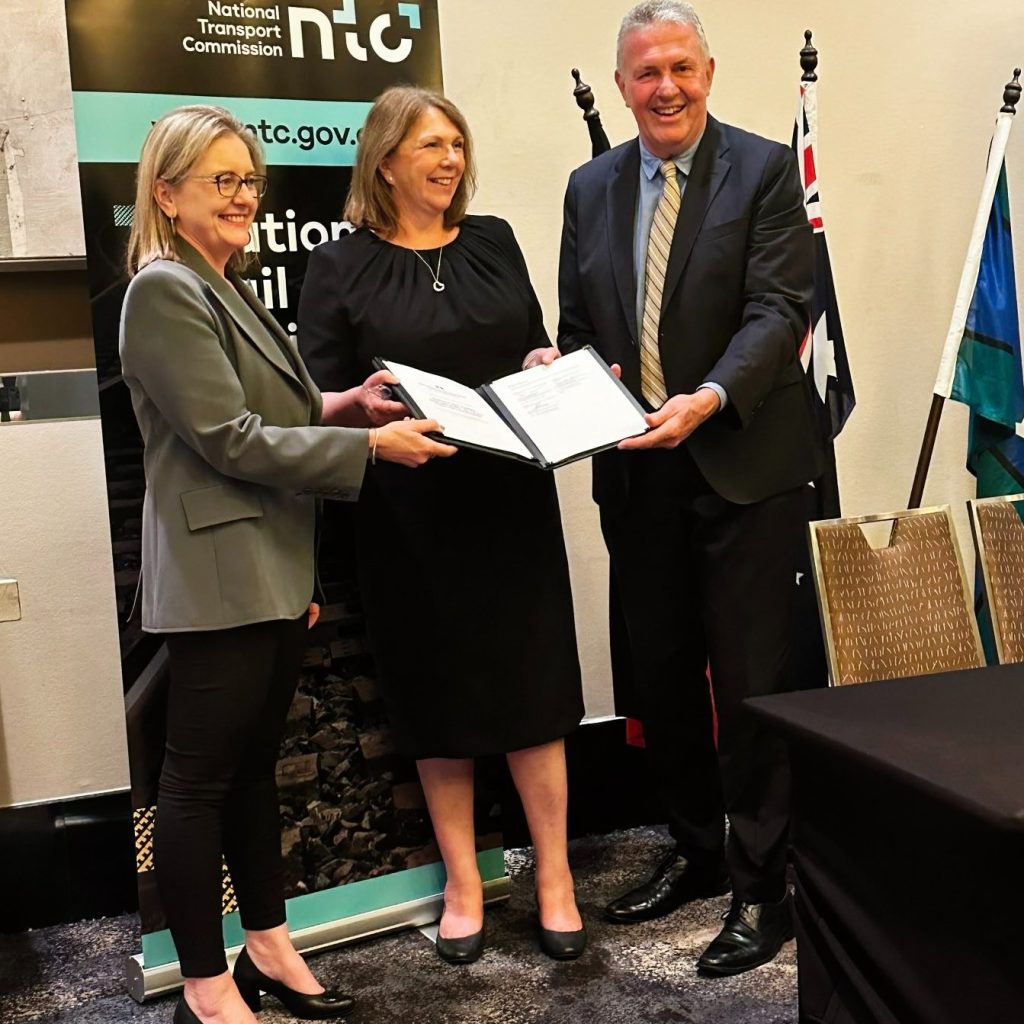 The Australian and Victorian Governments and the Australasian Railway Association (ARA) have signed the Memorandum of Cooperation to improve national rail interoperability and make rail more competitive across the continent.
The Australian and Victorian Governments and the Australasian Railway Association (ARA) have signed the Memorandum of Cooperation to improve national rail interoperability and make rail more competitive across the continent.
This agreement will see rail play a bigger role in the national economy while delivering more freight and passenger services.
Since federation, rail has run as a series of independent rail networks, often receiving upgrades and new technologies at different times from different suppliers. This has led to a range of critical issues impacting national rail productivity and innovation, such as the use of different gauges, signalling systems, rolling stock and safe working arrangements, differences in how to run trains, manage rail crew and invest in new rolling stock. Experienced rail workers is another issue at country’s level as they are being isolated to geographic areas based on differing technologies, compounding rail skills shortages.
Improving national rail interoperability is one of the National Cabinet’s five priorities for collective action. Infrastructure and Transport Ministers agreed to a number of productivity and safety measures in December, including setting a small number of critical national rail standards, aligning the different train control and signalling technologies used along the eastern seaboard and reducing the burden that different rail approaches have on drivers, crew and maintenance workers.
The Memorandum of Cooperation commits rail operators, constructors, manufacturers and transport ministers to work together to make rail more interoperable, particularly for any future major rail investments. This builds on the Albanese Government’s commitment to delivering the National Rail Manufacturing Plan, to support a nationally coordinated approach that will grow the rail manufacturing sector and create skilled manufacturing jobs.
The government will shortly appoint a National Rail Advocate and Rail Industry Innovation Council to support the plan and drive genuine change in Australian rail manufacturing, including bolstering supply chains and building domestic capabilities.
“Improving interoperability of the national rail network will mean more people will be employed, more manufacturing will be local, and more passenger and freight services will travel by rail,” the Federal Minister for Infrastructure, Transport, Catherine King said, adding that the agreement “commits all governments and industry to work together to ensure rail can play a bigger role in our nation’s future.”
Share on:



